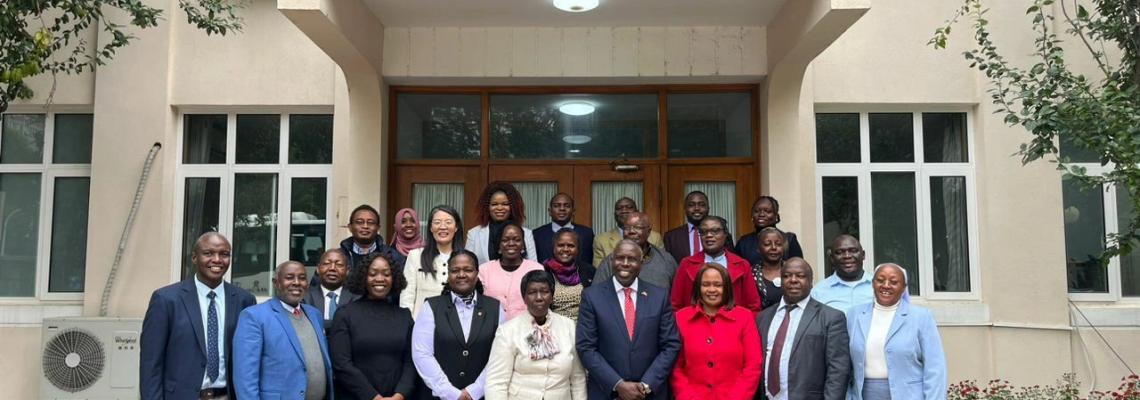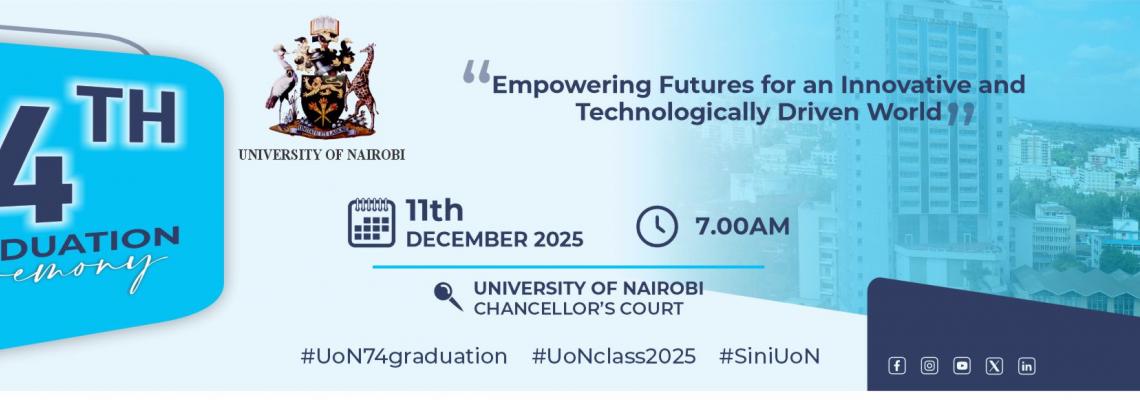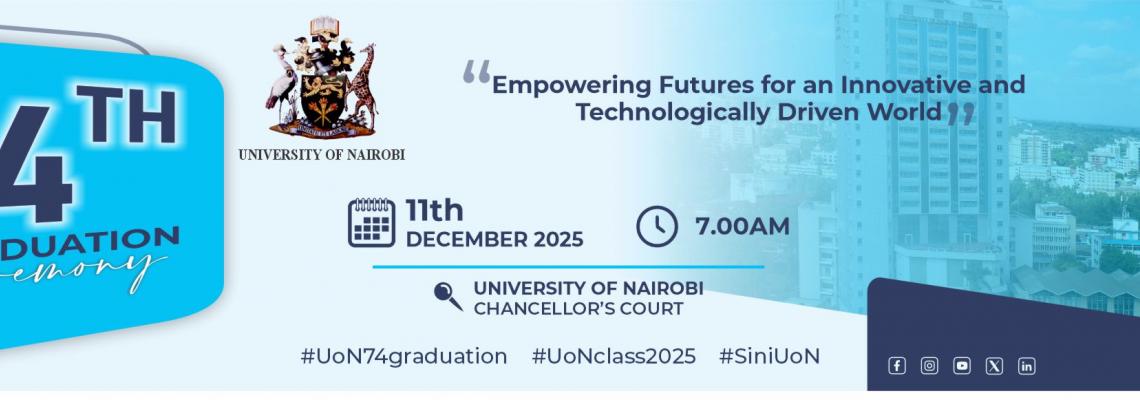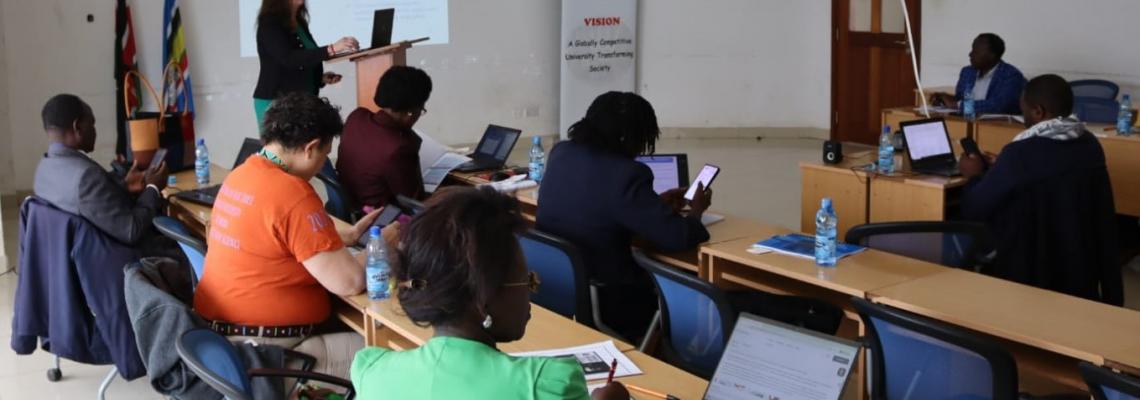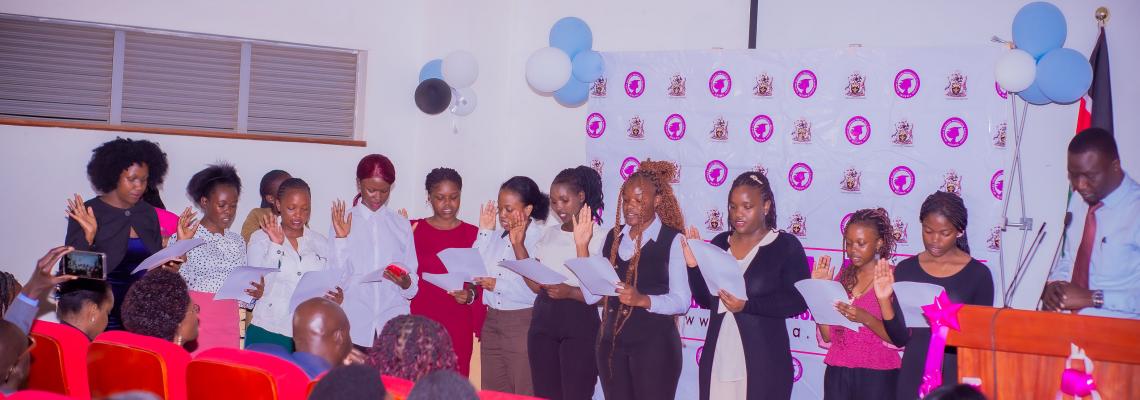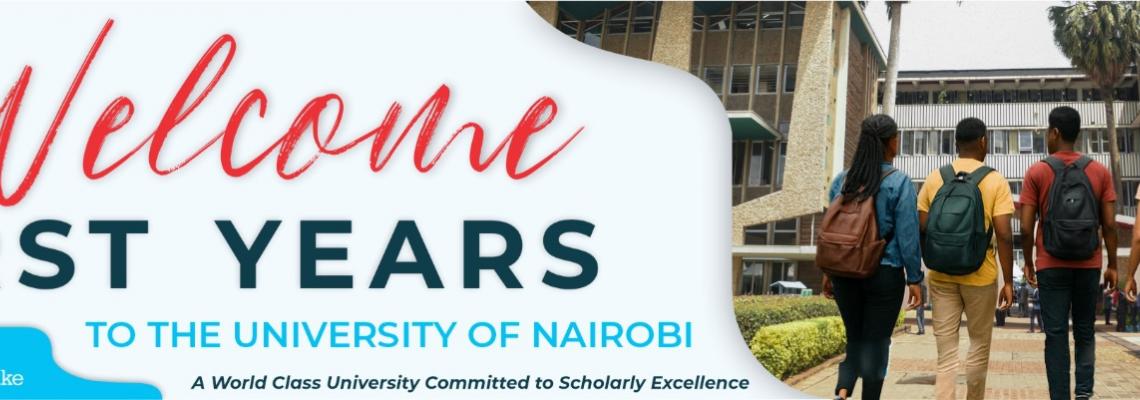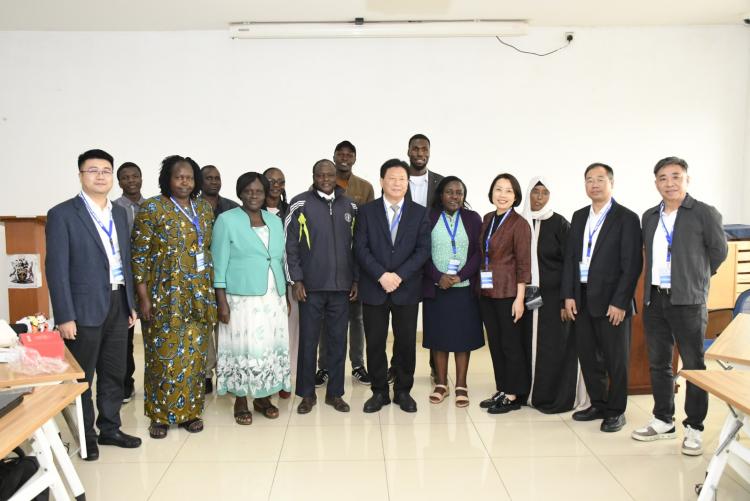Future-Proofing Education: UoN Conference Unveils Key Findings on AI and Curriculum
NAIROBI, KENYA—October 28, 2025
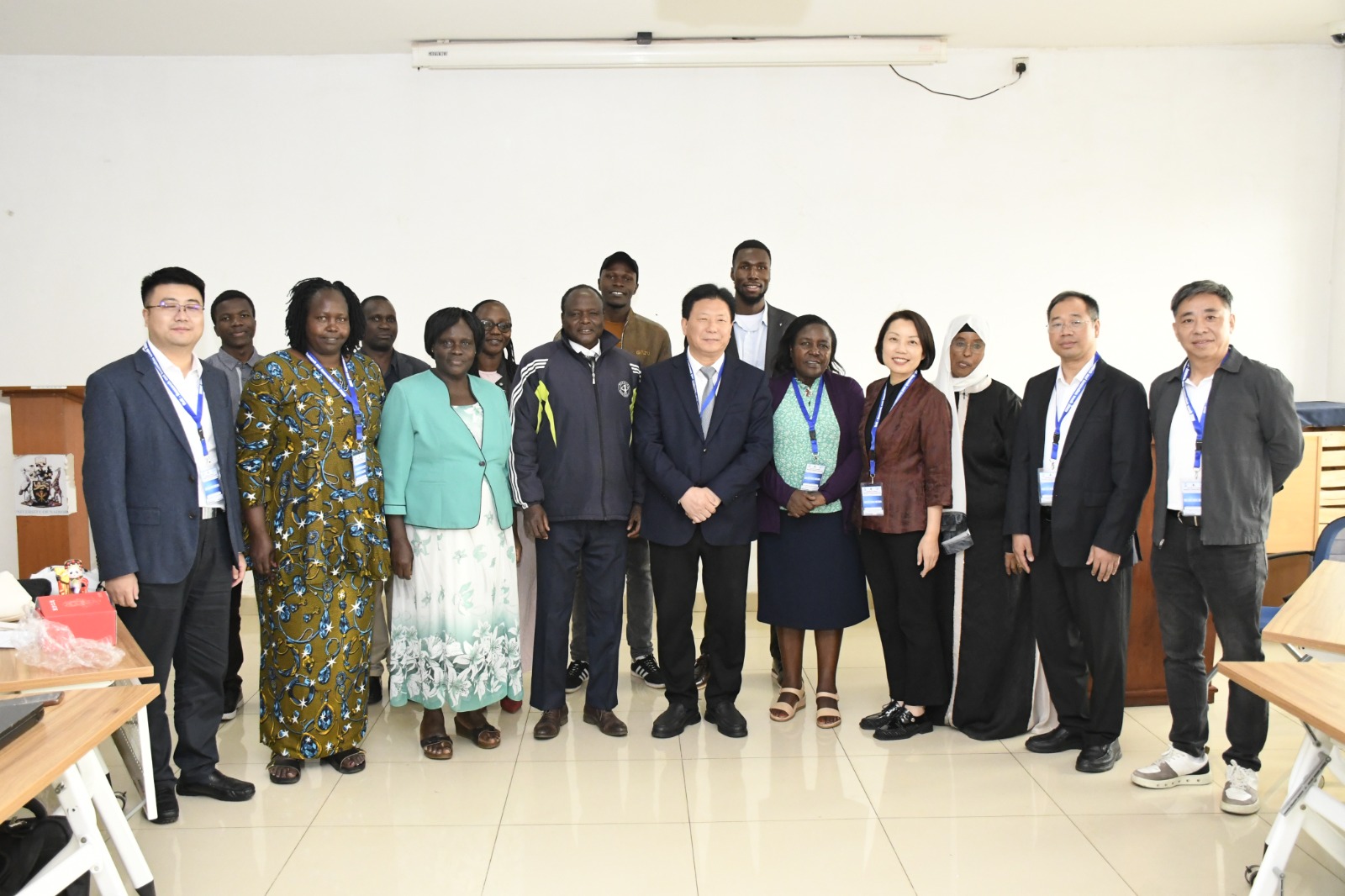
3rd International Conference on Educational Management, Policy & Curriculum Studies.
The University of Nairobi successfully hosted the 3rd Annual International Conference on Educational Management, Policy & Curriculum Studies (AICEMPCS 2025) last week, gathering global thought leaders to tackle the urgent task of integrating Artificial Intelligence (AI) into learning ecosystems. The conference, a flagship event of the UoN Research and Innovation Week, served as a pivotal platform for unveiling new research on how African education systems can responsibly harness AI for transformative learning.
The conference was officially opened by Prof. Margaret Jesang Hutchinson, Vice-Chancellor, University of Nairobi, who emphasized the institution's commitment to being at the forefront of this digital educational transformation. This year’s theme, “Advancing Research and Innovation from Discovery to Impact in a Dynamic Global Landscape”, captures the essence of our time. The global environment is rapidly being reshaped by artificial intelligence, biotechnology, climate science, and digital transformation. In such an era, universities must remain at the forefront — generating insights, technologies, and innovations that inform policy, drive enterprise, and enhance livelihoods. “We must not view AI as a threat to the curriculum, but as a powerful, unavoidable partner," stated Prof. Hutchinson. "The research presented here today must move rapidly from discovery to policy impact to future-proof our education system." Read by Prof. Jackson Maalu (Ag Deputy Vice Chancellor, UoN)
Prof. Jackson Maalu (Ag Deputy Vice Chancellor, UoN) and Prof. Thomas Ochuku (Director, Research, Innovation and Enterprise UoN): They underscored the need for interdisciplinary research, confirming that UoN would prioritize funding for projects bridging technology, pedagogy, and policy.
Prof. Jeremiah M. Kalai (Dean, Faculty of Education) and Prof. Susan Chepkonga (Chair, Department of Educational Management Policy and Curriculum Studies) were commended for successfully convening the critical dialogue, affirming the Faculty of Education’s role as a regional leader in shaping the future of learning.
Research presented by academics, including contributions from scholars like Dr. Susan Were (Lecturer, JKUAT), highlighted AI’s immense potential for hyper-personalized learning. Key findings indicated that AI-driven learning management systems (LMS) could analyze student performance data in real-time to tailor lesson pathways, suggest remedial content, and offer instant, formative feedback—a development crucial for addressing diverse learning needs in large-class environments prevalent in Africa. The research findings stressed that this shift moves the teacher's role from a content dispenser to a facilitator and mentor.
A critical finding, echoed across the policy-focused sessions led by Prof. Dorothy Ndunge Kyalo, focused on the severe gap between technological pace and official curriculum policy. Studies revealed that few current curricula explicitly mandate AI literacy, ethical data handling, or basic coding skills for all learners. The consensus was that without immediate policy intervention, a generation of students will graduate lacking the foundational skills needed to navigate an AI-driven economy, deepening the digital divide.
Amb. Prof. Peter Ngure (Kenya’s Ambassador to UNESCO, Paris, France): In a powerful address, Amb. Prof. Ngure stressed the international imperative for African nations to define their own ethical guidelines for AI in education, referencing global standards set by UNESCO. He urged African policymakers to invest in digital infrastructure and teacher re-skilling to ensure equity.
Research presented by chinies includes: Transnational Cooperation Pathways and Innovation in China-Kenya Environmental Education-Centred on Natural History. Ai Lian, Research on the Pathways of China-Africa Educational Cooperation in Promoting Africa's Modernization Development in the New Era. Liu Liyun & Chen Jie, Research on China-Africa Agricultural Education Cooperation: Historical Evolution, Opportunities, Challenges, and Suggestions. Yu Hong
Dr. Mamokgethi Phakeng (Former Vice-Chancellor, UCT): Dr. Phakeng, an award-winning leader in African education, focused on the governance of innovation. She championed the need for curriculum managers to adopt agile, evidence-based policy frameworks that can adapt quickly to exponential technological growth, rather than being bound by slow, traditional review cycles. The Postgraduate students were lauded for attendance and active participation.
The key takeaway from AICEMPCS 2025 is a dual mandate for education management: embrace AI to enrich pedagogy and urgently revise curriculum policy to embed the necessary ethical and technical AI skills for 21st-century citizenship.
Future-Proofing Education: UoN Conference Unveils Key Findings on AI and Curriculum
NAIROBI, KENYA—October 28, 2025
3rd International Conference on Educational Management, Policy & Curriculum Studies.
The University of Nairobi successfully hosted the 3rd Annual International Conference on Educational Management, Policy & Curriculum Studies (AICEMPCS 2025) last week, gathering global thought leaders to tackle the urgent task of integrating Artificial Intelligence (AI) into learning ecosystems. The conference, a flagship event of the UoN Research and Innovation Week, served as a pivotal platform for unveiling new research on how African education systems can responsibly harness AI for transformative learning.
The conference was officially opened by Prof. Margaret Jesang Hutchinson, Vice-Chancellor, University of Nairobi, who emphasized the institution's commitment to being at the forefront of this digital educational transformation. This year’s theme, “Advancing Research and Innovation from Discovery to Impact in a Dynamic Global Landscape”, captures the essence of our time. The global environment is rapidly being reshaped by artificial intelligence, biotechnology, climate science, and digital transformation. In such an era, universities must remain at the forefront — generating insights, technologies, and innovations that inform policy, drive enterprise, and enhance livelihoods. “We must not view AI as a threat to the curriculum, but as a powerful, unavoidable partner," stated Prof. Hutchinson. "The research presented here today must move rapidly from discovery to policy impact to future-proof our education system." Read by Prof. Jackson Maalu (Ag Deputy Vice Chancellor, UoN)
Prof. Jackson Maalu (Ag Deputy Vice Chancellor, UoN) and Prof. Thomas Ochuku (Director, Research, Innovation and Enterprise UoN): They underscored the need for interdisciplinary research, confirming that UoN would prioritize funding for projects bridging technology, pedagogy, and policy.
Prof. Jeremiah M. Kalai (Dean, Faculty of Education) and Prof. Susan Chepkonga (Chair, Department of Educational Management Policy and Curriculum Studies) were commended for successfully convening the critical dialogue, affirming the Faculty of Education’s role as a regional leader in shaping the future of learning.
Research presented by academics, including contributions from scholars like Dr. Susan Were (Lecturer, JKUAT), highlighted AI’s immense potential for hyper-personalized learning. Key findings indicated that AI-driven learning management systems (LMS) could analyze student performance data in real-time to tailor lesson pathways, suggest remedial content, and offer instant, formative feedback—a development crucial for addressing diverse learning needs in large-class environments prevalent in Africa. The research findings stressed that this shift moves the teacher's role from a content dispenser to a facilitator and mentor.
A critical finding, echoed across the policy-focused sessions led by Prof. Dorothy Ndunge Kyalo, focused on the severe gap between technological pace and official curriculum policy. Studies revealed that few current curricula explicitly mandate AI literacy, ethical data handling, or basic coding skills for all learners. The consensus was that without immediate policy intervention, a generation of students will graduate lacking the foundational skills needed to navigate an AI-driven economy, deepening the digital divide.
Amb. Prof. Peter Ngure (Kenya’s Ambassador to UNESCO, Paris, France): In a powerful address, Amb. Prof. Ngure stressed the international imperative for African nations to define their own ethical guidelines for AI in education, referencing global standards set by UNESCO. He urged African policymakers to invest in digital infrastructure and teacher re-skilling to ensure equity.
Research presented by chinies includes: Transnational Cooperation Pathways and Innovation in China-Kenya Environmental Education-Centred on Natural History. Ai Lian, Research on the Pathways of China-Africa Educational Cooperation in Promoting Africa's Modernization Development in the New Era. Liu Liyun & Chen Jie, Research on China-Africa Agricultural Education Cooperation: Historical Evolution, Opportunities, Challenges, and Suggestions. Yu Hong
Dr. Mamokgethi Phakeng (Former Vice-Chancellor, UCT): Dr. Phakeng, an award-winning leader in African education, focused on the governance of innovation. She championed the need for curriculum managers to adopt agile, evidence-based policy frameworks that can adapt quickly to exponential technological growth, rather than being bound by slow, traditional review cycles. The Postgraduate students were lauded for attendance and active participation.
The key takeaway from AICEMPCS 2025 is a dual mandate for education management: embrace AI to enrich pedagogy and urgently revise curriculum policy to embed the necessary ethical and technical AI skills for 21st-century citizenship.
- Log in to post comments

